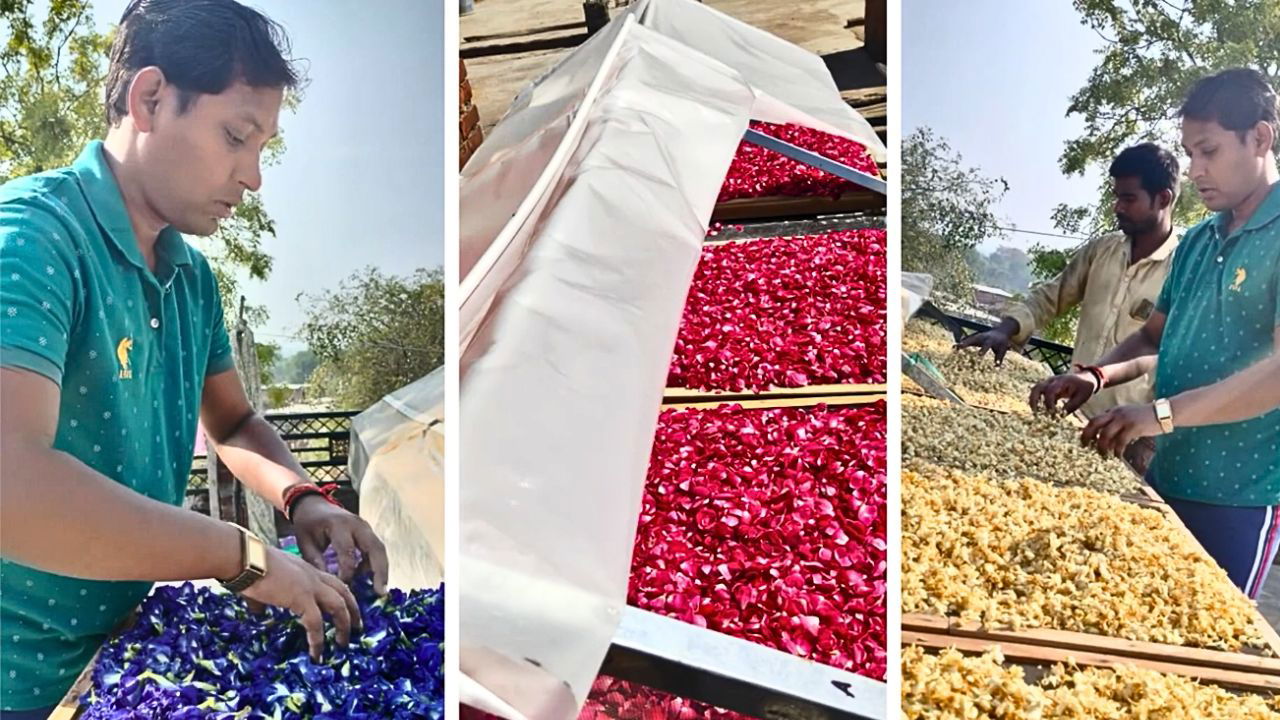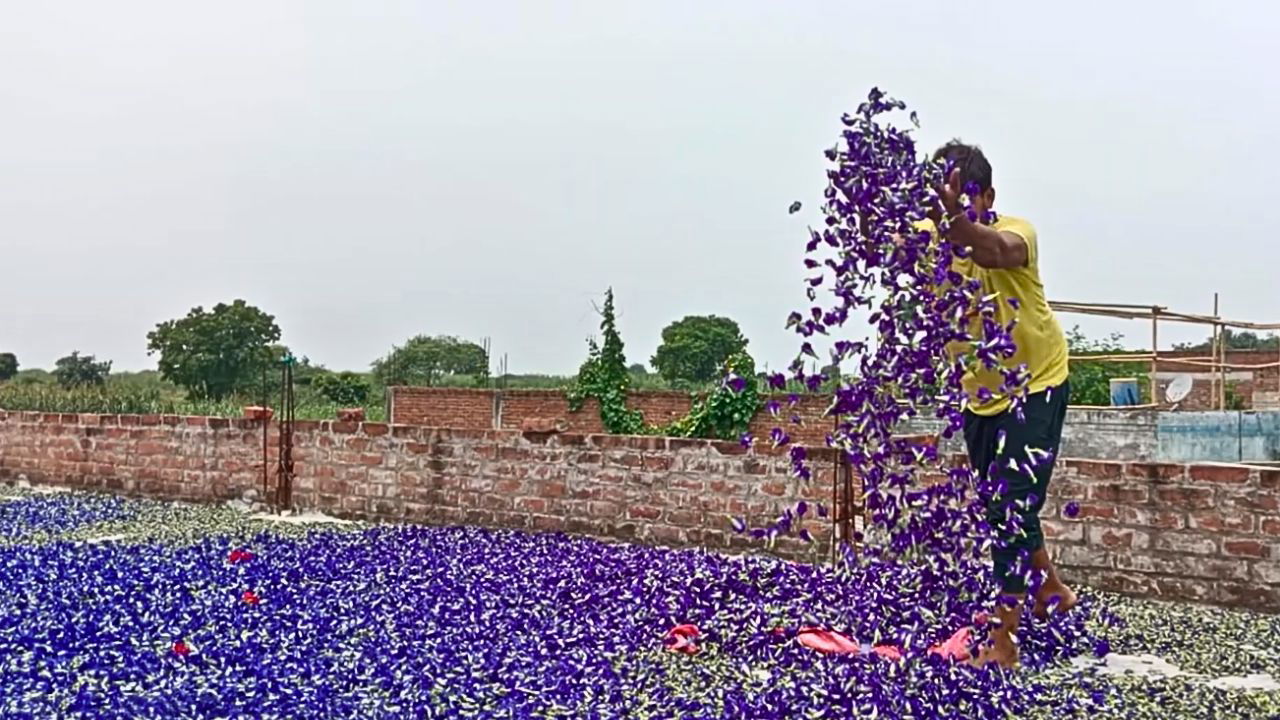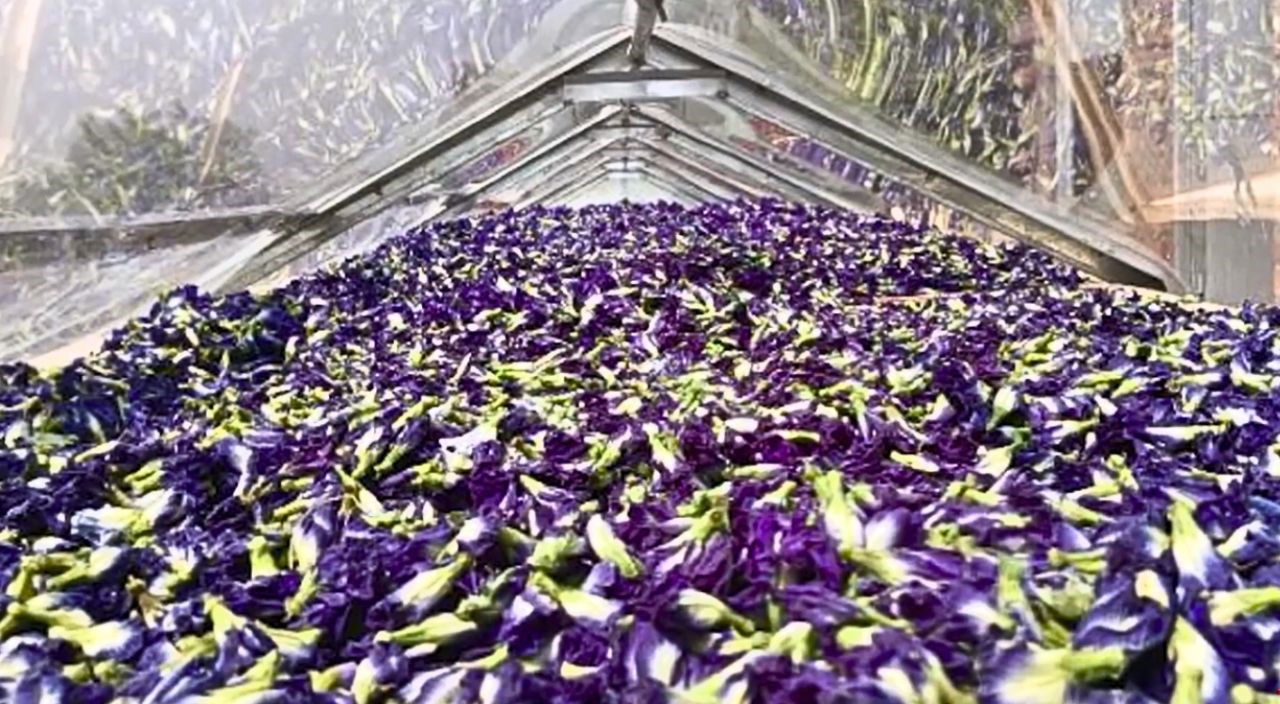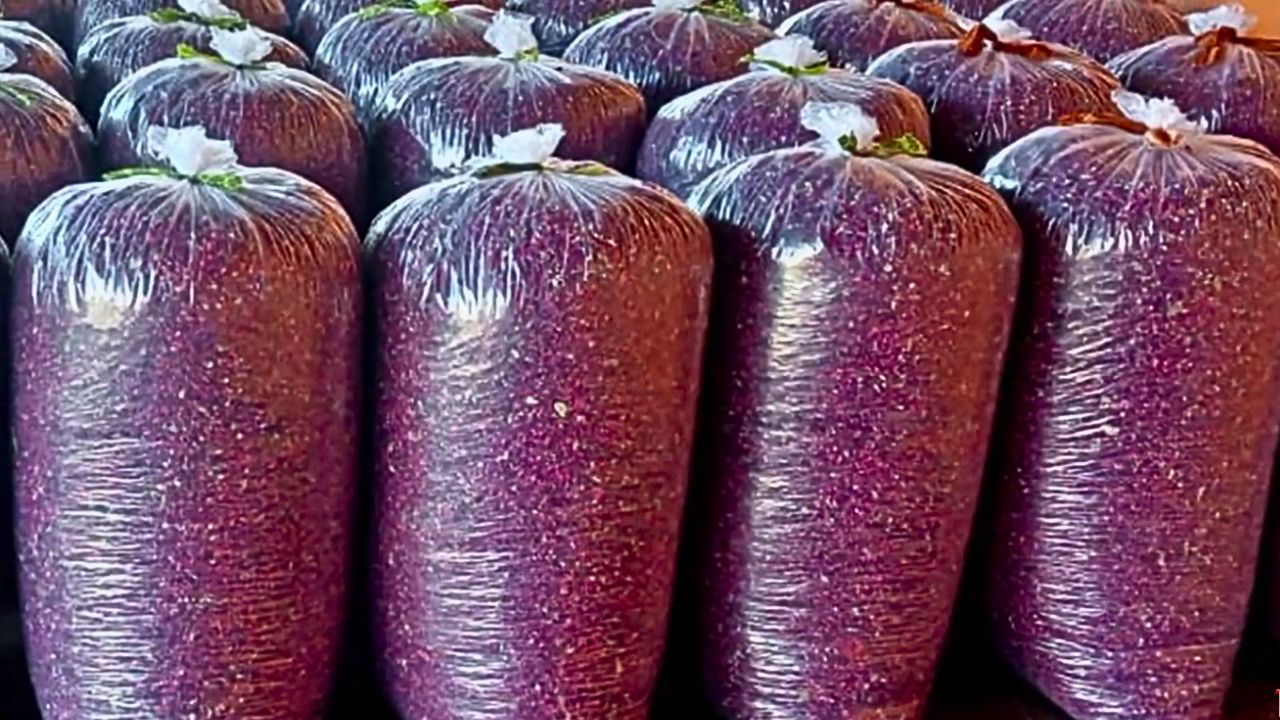
In a once-overlooked sector, flowers were dismissed as worthless after they dried and were often discarded by farmers, and thrown into the River Ganga. However, Shivraj Nishad revolutionized this perception, transforming these blooms into a lucrative product. Frustrated by long hours as a pharmaceutical representative, Nishad, 30, returned to his family’s plot in Sheikhpur, Uttar Pradesh, to cultivate flowers. Recognizing the issue of flower spoilage, he emphasized drying to extend shelf life and unlock new profit avenues. Using solar-powered dryers, Nishad now dries jasmine and rose petals, which are then used to make tea leaves. This innovative approach has not only improved product viability but also empowered flower businesses in a previously undervalued market.

A Blossoming Vision
Shivraj Naishad's tale began in an affronted bed of flowers before eventually ending prosperously. Farmers in his region, unable to transport their flower produce to sell, sometimes dumped it over the Ganges. "There wasn't anyone to buy even a kilo," he recalls, underlining the situation before his intervention.
Despite the bleak scenario, Nishad saw potential where others saw waste. With the prior knowledge that he had in his medicinal farming, he began to work on ways to increase the shelf life of the flowers and market value. His efforts led to the realization that drying flowers could preserve their quality and find alternatives for usage in Ayurvedic and the herbal industry.
Turning Flowers into Gold
Although the idea of drying flowers was not new, Nishad's method was creative. He concluded that the main problem with flowers was that they had a limited shelf life and would begin to decay within a few days of being picked. He could keep them for several years, retaining their color, scent, and medicinal benefits by drying them.
The blue pea flower, which is used to make herbal teas like blue tea, which has several health advantages such as anti-aging, anti-diabetic, and antioxidant qualities, was Nishad's first significant discovery. In order to broaden his product line, he also started drying other flowers including hibiscus and chamomile for use in teas, syrups, and preserves.

Solar Dryers Made a Significant Difference
The use of solar dryers was a key turning point in Nishad's business endeavor. Initially, he dried flowers in the open environment, but this method was fraught with issues like dust, birds, and weather conditions that could ruin the product. Nonetheless, solar dryers provided a regulated setting devoid of these issues.
“The solar dryer doesn’t allow dust to get in. The product that dries in it is food-grade and 100% pure,” Nishad explains. The dryers made sure the flowers kept their original color and scent without sacrificing quality by keeping the temperature between 40 and 45 degrees Celsius constant. The product's commercial appeal and shelf life were both increased by this technique.
Empowering Farmers and Overall Income
Currently, Nishad's flower business sells 500–1,000 kg of flowers per month, generating a profit of about Rs. 1,00,000 and up to Rs. 4,00,000. This business supports hundreds of local farmers and generates about 10 stable employment, half of which are held by women. As a result, it plays a vital role in communal life.
With 400–500 farmers being a part of his network, Nishad's achievement is a collaborative effort rather than just his own. By promising farmers that their produce, whether it be fresh or dried, would be purchased at a reasonable price, he has completely changed the local agricultural sector. The desperation that once caused them to throw away their flowers has vanished thanks to this assurance.
Today, farmers send their produce to Nishad with the assurance that they would be paid a fair price. “No farmer sells anything below 6 to 7 kilos now,” he says, reflecting the significant shift in the local market dynamics.
Challenges and Triumphs
Like any entrepreneurial journey, Nishad's has its share of difficulties. He struggled to sell and grow the business after starting out farming and working a job. Nevertheless, his perseverance paid off as he developed a personal network and a solid reputation that helped his business succeed.
Teaching farmers the advantages of drying flowers and getting them to use new technologies like solar dryers was one of the main hurdles. But he was able to gain their cooperation and trust by working consistently hard and proving his worth.
A Vision for the Future
Beyond his present achievements, Nishad has bigger plans. He already has a registered trademark named “Blue Veda” and his goal is to launch a farmer-led brand, that will direct sales from farmers to consumers, cutting out middlemen and increasing farmer profits. With this business, he hopes to demonstrate the power of creative and sustainable farming methods on a worldwide scale.
In addition, Nishad intends to grow his business by increasing the usage of solar dryers in order to manage greater volumes. He is determined to boost his production capacity in order to fulfill the rising demand, having gone from initially drying 50 kg to now aiming for 1000 to 2000 kg.
Impact on the Local Economy
The ripple effect of Nishad’s business is evident in the improved financial conditions of the farmers he works with. He has eased a lot of their financial burden by giving them a steady market for their produce and reasonable prices. In the processing and marketing phases, his company has also generated more job opportunities, boosting the local economy.

Role of Agricultural Machines in Farming
Nishad's farm relies heavily on agricultural machinery for farming operations. Even while some operations, like selecting flowers, are too delicate to be mechanized, machinery plays a critical role in the production process after that. For example, solar dryers play a crucial role in making sure that flowers are dried properly, especially in the rainy season when natural drying isn't possible. Without these dryers, the company would suffer serious losses.
To further process components like ginger and cinnamon, devices such as size-reducing and powder-making equipment are also used. These are carefully chopped into bits that range from 2 to 5 mm before being mixed with blue peas to achieve the ideal balance of flavors. These agricultural machinery's specific function guarantees the smooth functioning of the farm, preserving output quality and efficiency.
A Model for Sustainable Agriculture
By encouraging the use of renewable energy (solar dryers) and cutting waste through creative processing methods, Nishad's business is a prime example of sustainable agriculture. His emphasis on cultivating medicinal and herbal crops fits nicely with the increasing demand for natural and organic goods around the world, setting up his company for future expansion.

The transformation of Shivraj Nishad from a struggling flower farmer into a prosperous businessman is proof of the value of creativity, community support, and sustainable methods. Not only do farmers find inspiration in his narrative, but everyone hoping to use entrepreneurship to create a significant impact is also inspired. With his business and ideas still growing, Nishad will have a lasting impact on the agricultural sector locally and globally.
Shivraj Nishad's perseverance and visionary approach have allowed him to turn an idea that was once deemed useless into a successful business, demonstrating that any obstacle can be overcome with the correct attitude and resources.











